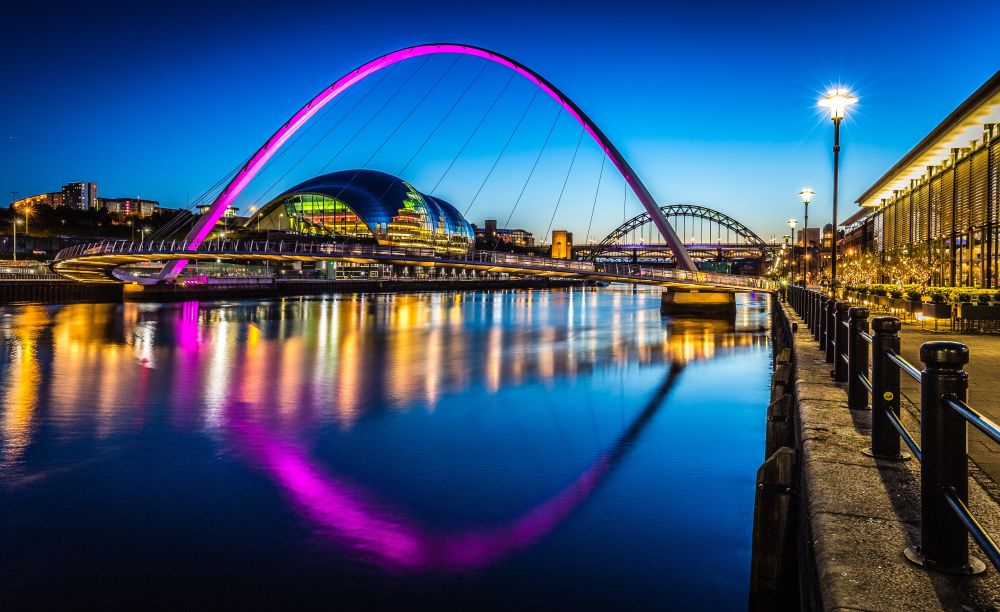

The Quayside in Newcastle upon Tyne, often referred to simply as the Quayside, is an area along the banks of the River Tyne that has been an integral part of the city's history. From its origins as an industrial hub bustling with merchants and mariners, it has transformed into a vibrant area known for its cultural landmarks, historic architecture, and lively entertainment scene.
The history of tourism at The Quayside can be traced back to its days as a medieval commercial port where wool, coal, and other goods were traded. By the 16th and 17th centuries, the port of Newcastle became one of the world's largest coal exporters. Over time, as the industrial significance dwindled, the area's historic value and riverside charm began to catch the attention of tourists and locals alike.
With the decline of heavy industry in the latter half of the 20th century, The Quayside underwent significant regeneration. Old warehouses were repurposed into art studios, galleries, restaurants, and bars, which began attracting visitors from all over the country and beyond. The cultural renaissance of the area was marked by the opening of iconic structures such as the BALTIC Centre for Contemporary Art and the Sage Gateshead, a concert venue of international repute.
The construction of the award-winning Gateshead Millennium Bridge, which opened in 2001, became a symbol of The Quayside’s resurgence. This tilting bridge not only serves a practical purpose by connecting Newcastle and Gateshead but also stands as a work of art and engineering excellence, drawing numerous visitors to marvel at its design and enjoy the panoramic views of the river and city.
In recent years, The Quayside has seen a shift towards experiential tourism. Weekly markets and festivals have become a mainstay, offering a taste of local culture and cuisine. Additionally, fitness tourism has gained popularity, with the Quayside serving as a scenic backdrop for runs and cycling events.
Eco-tourism is becoming increasingly important, with sustainable travel options being offered, such as electric bike rentals to explore the riverside. Staycations have also seen a rise, particularly during the times when international travel was restricted due to the global pandemic.
Looking to the future, The Quayside is expected to continue its growth as a tourist hotspot while maintaining its unique blend of history and modernity. Plans for further development and events are aimed at boosting tourism and creating an even richer experience for visitors. With a focus on sustainable and cultural tourism, The Quayside is well positioned to thrive in the ever-evolving tourism landscape.
In conclusion, The Quayside's journey from an industrial port to a vibrant urban tourist destination is a testament to Newcastle's ability to reinvent itself while celebrating its rich heritage. The area's continuous evolution and its blend of historic sites with contemporary attractions ensure that The Quayside remains one of the most dynamic and appealing tourist areas in the United Kingdom.